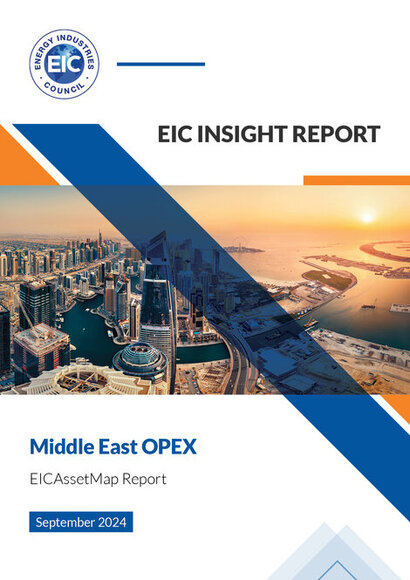
These investments involve 116 renewable energy projects, which are tracked by the EICDataStream database, and forecasted to come on stream between 2025 and 2030. These span solar power, onshore wind, hydro, hydrogen production, carbon capture utilization and storage (CCUS), geothermal energy, and battery and energy storage systems.
While the region's clean energy investments have increased exponentially, the International Energy Agency (IEA) estimates that only 20 percent of the allocated energy investments in the Middle East will be channeled to renewables, while the lion's share of the money is still spent on the oil and gas sector. Despite increasing interest, the region remains focused primarily on hydrocarbon production, supported by abundant gas reserves and competitive pricing, amid continuing claims that fossil fuels are serving as a transitional energy source.
The dual approach of investing in renewable energy projects, while also improving traditional energy infrastructure, reflects the complexity of the region's transition.
“Most spending is understandably going to oil and gas, but we are seeing cleantech projects in hydrogen, solar, wind, and carbon capture” said report author Aqilah Shahruddin. “So, it's a balancing act between producing clean energy and maintaining the region's dominance in the global hydrocarbon market.”
Large solar projects, such as Phase 5 of Rashid bin Mohamed Al-Makhtoum Solar Park, are making successful headway, but challenging conditions persist for onshore wind development due to rising equipment costs and grid capacity constraints, the report said.
Wind installations that arrived late in 2023 added 306 MW in the UAE and Israel, according to the report, but current supply chain delays and increased labor costs hinder further advances.
Forecast data from the EIC suggests that, although renewables are being steadily added to the mix, oil and gas will dominate for many years yet.
“The Middle East is a key focus for the EIC and the number of cleantech projects in the pipeline makes it more relevant for years to come” added Ryan McPherson, EIC's Regional Director for the Middle East and Africa. “We are very actively engaged in supporting the region's energy transition with our project data, reports and industry events."
For additional information:

